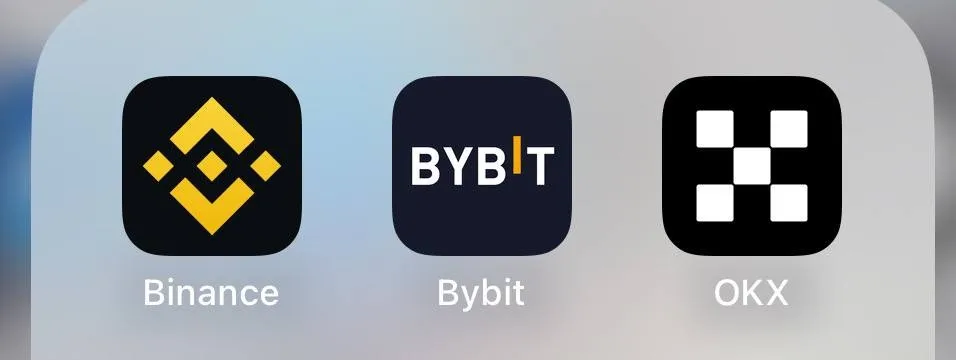
Cryptocurrency for Beginners: Where to Start and How to Understand It

For newcomers to the world of cryptocurrencies, the first acquaintance with this market may seem complicated and confusing. However, understanding the basic principles of how cryptocurrencies work, how they are stored, invested and earned will help you confidently take your first steps and capitalize on the digital economy.
History of cryptocurrencies
Cryptocurrency is a digital form of money that began its development in 2008 with the emergence of bitcoin (Bitcoin). The creator of bitcoin was a person or group of people under the pseudonym Satoshi Nakamoto. The main idea of cryptocurrency was to create a decentralized financial system, free from the control of banks and states. Over time, thousands of cryptocurrencies have appeared on the market, each offering different technologies and solutions.
Cryptocurrencies - how they are created
Cryptocurrencies are created using blockchain technology, a distributed ledger that records all transactions. To issue a new cryptocurrency, you need to:
-
Develop blockchain code or use off-the-shelf solutions (e.g. Ethereum).
-
Set up the network and consensus mechanisms (Proof of Work, Proof of Stake, etc.).
-
Determine the total number of coins and the conditions for their mining or issuance.
-
Introduce cryptocurrency on exchanges and in the wallet system.
Many projects issue tokens using already existing blockchains, this greatly simplifies the process.
What cryptocurrencies are for
Cryptocurrencies serve many functions in today’s economy:
1. alternative to traditional currencies
-
Decentralization: No direct control by central banks or the government. This allows users to avoid the influence of traditional financial institutions such as banks or regulators.
-
Global currency: Cryptocurrencies are used all over the world, regardless of borders, currency zones or economic systems.
Example: Bitcoin (BTC) can be used to pay for goods and services directly, bypassing banks and intermediaries.
2. A means of saving and investing
-
Cryptocurrencies, especially popular ones such as Bitcoin and Etherium, have become an alternative to traditional assets (gold, stocks).
-
The opportunity to invest and profit from the growth of cryptocurrencies.
-
Stable coins (stablecoins) - such as USDT, pegged to the US dollar, serve as a reliable means of preserving capital in the face of inflation.
Example: Many people buy bitcoins in anticipation of future appreciation.
3. Fast and cheap transfers
-
Cryptocurrencies enable worldwide transfers faster and cheaper than banking systems that require middlemen, high fees and long lead times.
-
No need for verification through SWIFT or other systems.
Example: Sending cryptocurrency from one country to another can take a few minutes and the commission is minimal.
4. Financial anonymity and freedom
-
Cryptocurrencies provide complete privacy for transactions. Many cryptocurrencies, such as Monero or Zcash technologies, allow you to hide information about the payer, the recipient and the amount.
-
Full control over your funds: only the cryptocurrency owner can manage his coins.
Example: People in countries with strict control use cryptocurrencies to maintain their financial independence.
5. Technology Development
-
Smart contracts are programs that automatically execute the terms of agreements without the involvement of intermediaries. They are used in fields such as finance, real estate, and law.
-
Blockchain technologies enable the creation of decentralized applications (dApps) and NFTs.
Example: Ethereum (Ethereum) allows developers to create smart contracts.
6. Financial Inclusion
-
Cryptocurrencies allow unbanked people to participate in the economy of the country and the world.
-
Especially useful in regions with poor financial infrastructure.
Example: People in developing countries can store money and make payments through mobile crypto wallets.
7. Decentralized Finance (DeFi)
-
DeFi are blockchain-powered financial instruments that provide an alternative to banking services such as lending, deposits, and currency exchange.
-
DeFi systems operate without intermediaries and offer transparency and control to users.
Example: Platforms such as Aave or Compound allow users to borrow or earn income from their cryptocurrency assets.
8. Creating new economic models and tokenization
-
Cryptocurrencies allow assets to be digitized and tokenized (turned into digital tokens). These can be stocks, real estate, works of art and other valuable assets.
-
Opens up opportunities for crowdfunding and raising investment.
Example: NFTs (non- fungible tokens) are used to sell digital art, music and other unique objects.
9. Resistance to inflation
-
Most cryptocurrencies, such as Bitcoin, have a strictly limited supply of coins (21 million), which prevents inflation caused by the uncontrolled issuance of money.
-
Compared to fiat currencies, cryptocurrencies are not subject to manipulation by central banks.
Example: Residents of hyperinflationary countries (e.g. Venezuela) use cryptocurrencies to protect themselves from the depreciation of the local currency.
10. Innovation in games and virtual worlds
-
Cryptocurrencies and blockchain are being used in video games to create in-game economies and digital assets.
-
Users can own items, exchange them, and earn profits.
Example: Blockchain-based games such as Axie Infinity use cryptocurrencies for in-game transactions.
11. Countering censorship
-
In countries with censorship or political restrictions, cryptocurrencies enable the free exchange of value.
-
Transactions cannot be blocked or canceled by governments.
Example: In countries with banking restrictions, people use cryptocurrencies to make financial transactions.
12. innovations in digital identity
- Blockchain can be used to create secure and transparent digital identity systems, which is useful in the financial sector, voting and medicine.
Why cryptocurrency is better than fiat money

Cryptocurrencies have several advantages over traditional fiat money:
1. Decentralization
-
Fiat money is completely controlled by central banks and government agencies. They can regulate the money supply, devalue the currency through inflation, or freeze accounts.
-
Cryptocurrencies run on decentralized blockchains that are independent of a specific institution or government. Control is distributed among network participants.
-
No bank or government can block or cancel transactions.
Benefit: Cryptocurrency users have complete control over their funds.
2. Limited issuance
-
Fiat money can be printed uncontrollably, leading to inflation and a decrease in its purchasing power. For example, hyperinflation in some countries has devalued national currencies to almost zero.
-
Most cryptocurrencies, such as Bitcoin, have a limited supply of coins. For example, the Bitcoin network will only have 21 million coins.
Benefit: Limited issuance makes cryptocurrencies resistant to inflation and helps preserve the value of money.
3. Low fees and fast transactions
-
International transfers of fiat money often require banks, intermediaries (e.g. SWIFT) and high fees. The transfer time can take anywhere from a few days to a week.
-
Cryptocurrencies allow for fast and inexpensive transfers worldwide. For example, bitcoin transfers can take just a few minutes and the fees will be many times less.
Benefit: Cryptocurrencies are suitable for cheap and fast international payments.
4. Financial accessibility
-
Many people, especially in developing countries, are still cheek by jowl without access to banking services.
-
In order to use cryptocurrencies, all you need is an internet connection and a digital wallet - bank accounts and credit cards are not necessary.
Benefit: Cryptocurrencies provide financial inclusion for people around the world.
5. Secure Transactions
-
All transactions on the blockchain are transparent and recorded in a distributed ledger. Any user can verify the transfer, which eliminates the possibility of fraud.
-
Cryptocurrencies use cryptography that protects data and prevents hacking.
Benefit: Blockchain systems make transfers transparent and tamper-proof.
6. Independence from banks and intermediaries
-
In the case of fiat money, banks play the role of intermediaries, controlling transactions and charging fees for services.
-
Cryptocurrencies allow P2P (person-to-person) transfers directly, without intermediaries.
Benefit: Savings on commissions and independence from bank restrictions.
7. Financial anonymity
-
In a traditional banking system, every transaction is tied to an individual, making privacy impossible.
-
Cryptocurrencies provide partial anonymity. The blockchain does not display user names, only public wallet addresses. Anonymous cryptocurrencies (e.g. Monero) allow transaction data to be completely hidden.
Benefit: Users can maintain financial privacy.
8. Resistance to censorship
-
Fiat money and bank accounts can be frozen or confiscated by governments and financial regulators.
-
Cryptocurrencies operate on a decentralized network, so transactions cannot be blocked or reversed.
Benefit: People are free to manage their funds, even in times of political instability.
9. Protection against inflation and currency devaluation
-
Central banks can devalue fiat money through uncontrolled issuance.
-
Cryptocurrencies such as Bitcoin, with limited supply and fixed issuance rules, protect capital from inflation.
Benefit: Cryptocurrencies help preserve purchasing power.
10. Global nature
-
Fiat money is dependent on the borders and regulations of individual countries.
-
Cryptocurrencies are global money and can be used all over the world, without conversion or banking restrictions.
Benefit: Convenience for international settlement and trade.
11. Innovation
Cryptocurrencies and blockchain technologies open up new economic and technological opportunities:
-
Smart contracts automate the execution of transactions.
-
DeFi (decentralized finance) offer an alternative to traditional banking.
-
NFTs allow for the toning down and trading of unique assets.
Benefit: Cryptocurrencies facilitate the development of new technologies.
12. Control of funds
-
In a banking system, the money in accounts is formally owned by the bank and users only “use” it.
-
In a cryptocurrency network, the owner of a digital wallet can have full control over their funds through private keys.
Benefit: Only the wallet owner can manage their money.
13. No limits on transaction amounts and frequency of transactions
-
Banks and financial regulators often impose restrictions on transfers, especially large amounts.
-
Cryptocurrency has no such restrictions: you can transfer any amount at any time.
Benefit: Cryptocurrencies are convenient for any type of transaction with no limits or delays.
Where and how to store cryptocurrency
Special wallets are used to store cryptocurrencies, which can be divided into:
-
Hot wallets - online storage devices that are permanently connected to the internet (e.g. wallets on exchanges or mobile apps).
-
Cold wallets - hardware devices or software wallets that store keys offline.
A cold wallet is the safest option for long-term storage, while a hot wallet is for quick and everyday transactions.
How to invest in cryptocurrency

-
Choose a cryptocurrency exchange - register on a reliable platform (e.g. Binance, Bybit, OKX).
-
Go through verification (KYC) - confirm your identity for safe operation.
-
Define your investment strategy - select assets and decide what purpose you are buying them for.
-
Diversify your portfolio - don’t invest all your money in one coin.
-
Monitor market conditions regularly - keep an eye on news and cryptocurrency rates.
How to earn cryptocurrency
There are many ways to earn cryptocurrency, some of them more risky, and some of them practically risk-free, let’s consider the main directions:
Trading bots
Trading bots, such as those from Veles Finance, allow you to fully automate the process of trading cryptocurrencies on centralized exchanges. Bots analyze the market, open and close deals according to the strategies you set or selected from ready-made strategies, which allows you to earn even without constant monitoring of the market.
Investments
Buying cryptocurrencies for the long term and waiting for them to grow.
Mining
The process of mining cryptocurrency using the processing power of equipment.
Trading on the exchange
Buying and selling cryptocurrencies to profit from changes in their price. You can read more about this type of earnings in our article - How to trade cryptocurrency - detailed instructions for beginners
Cranes
Services that give away a small amount of cryptocurrencies for performing simple tasks.
Airdrop
Receiving free tokens from new projects for registration and participation in their promotion. Interesting type of earnings, provides opportunities to earn income without investing money, more in the article - Airdrop cryptocurrency - what is it and how does airdrop work in crypto?
Cryptocurrency is legal
The legality of cryptocurrencies depends on the country. Cryptocurrencies are legal in most nations, but are regulated differently:
-
In the US and EU, cryptocurrencies are treated as assets and regulated by tax laws.
-
In China, trading and mining of cryptocurrencies is prohibited.
-
In Russia, cryptocurrencies are allowed to be stored, but are banned as a means of payment.
Is there a future for cryptocurrencies
Yes, the future of cryptocurrencies looks promising. The main trends are:
-
Development of DeFi platforms and smart contracts.
-
Mass adoption of cryptocurrencies for settlement.
-
The introduction of CBDCs (central bank digital currencies).
-
The rise in popularity of NFTs and tokenized assets.
Are there frauds when buying or selling cryptocurrency
Yes, there are many fraudulent schemes in the cryptocurrency sphere:
-
Phishing - creating fake websites and wallets.
-
Ponzi schemes - promising high profits with no real activity.
-
Fake exchanges - platforms that block withdrawals.
To protect yourself, use only trusted platforms and services.
Can cryptocurrency be stolen
Cryptocurrency can be stolen if you don’t follow security measures:
-
Use cold wallets to store large amounts.
-
Enable two-factor authentication (2FA) on all platforms.
-
Do not share your private keys and seed phrases with anyone.
-
Work only with trusted exchanges and wallets.
Conclusion
Cryptocurrencies are an innovative financial instrument that offers great opportunities for earning and investing. Despite the risks, with the right approach and security measures, you can successfully start working with cryptocurrency and benefit from it. The main thing is to start by learning the basics and choosing reliable platforms to work with.
FAQ
1. Is it possible to start working with cryptocurrency without experience?
Yes, many platforms offer simple instructions and materials for beginners.
2. Which cryptocurrency is the most reliable?
Bitcoin (BTC) and Etherium (ETH) are considered the most reliable assets on the market.
3. Which wallet should I choose to store cryptocurrency?
You can use hot wallets for small amounts, and cold wallets for large amounts.
4. Is it possible to lose all the money by investing in cryptocurrencies?
Yes, due to the high volatility of the market, cryptocurrencies can both sharply rise and fall in value.
5. What are trading bots?
Trading bots are programs that automate the process of trading cryptocurrency and allow you to earn passive income.